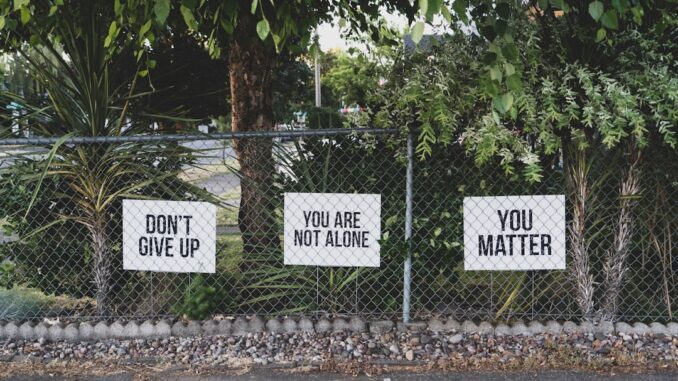
Summary
This article provides ten actionable steps for individuals transitioning back to work after completing rehab. It emphasizes the importance of aftercare planning, building a support system, and managing stress. By following these steps, individuals can increase their chances of successfully navigating this challenging transition and maintaining long-term sobriety.
** Main Story**
Life after rehab…it can feel like climbing a mountain, can’t it? Getting back to work is a huge milestone, but it’s also a big adjustment. It’s not just about finding a job; it’s about creating a sustainable and fulfilling life while staying on track with your recovery. So, how do you actually do it? Let’s break down ten key steps, treating it as a professional conversation, because, well, it is.
1. Embrace Aftercare: Your Recovery’s Second Act
Rehab isn’t the finish line; it’s more like base camp. Think of aftercare as your ongoing training program. We’re talking therapy, support groups, maybe even a sober living situation. All of these provide that crucial structure and support, helping you stick to the changes you’ve made. I remember a friend who went through a program; he said the weekly therapy sessions were what kept him grounded when work got crazy.
Work with your rehab team to create a personalized aftercare plan. It needs to fit your life and address your specific challenges, not a cookie cutter one.
2. Build Your Fortress of Support
Isolation is the enemy. You need a solid support system, people who get what you’re going through. Family, friends, a sponsor, a therapist – they’re your lifeline. Sharing your struggles and victories with people that ‘get it’ makes the whole process less lonely. They can offer encouragement, practical advice, and hold you accountable. Because let’s be honest, sometimes we need a nudge in the right direction.
3. Self-Care: It’s Not a Luxury, It’s Fuel
Look, I know ‘self-care’ can sound a bit cliché, but it’s absolutely vital. If you are running on empty, your recovery will suffer. So, make sure you’re getting enough sleep, eating well (pizza every night doesn’t count!), exercising, and doing things you genuinely enjoy. Hiking, reading, painting bad landscapes–whatever chills you out. These habits reduce stress, improve your mood, and build your resilience.
4. Stress Management: Your Cravings Kryptonite
Work can be a major source of stress; that we know. And stress? It can trigger cravings faster than you can say ‘happy hour.’ That’s why you need to develop healthy coping mechanisms before you get back in the thick of things. Mindfulness, meditation, deep breathing, or even just a quick walk outside can do wonders. And, if you see workplace stressors coming, make a plan to tackle them head-on. If possible, consider talking to your employer about accommodations that can help manage the stress.
5. Realistic Expectations: Progress, Not Perfection
Don’t expect to waltz back into work and immediately be Employee of the Month. Give yourself time to adjust. There will be ups and downs. Setbacks are normal. The key is to be patient, celebrate small wins, and focus on gradual progress. Baby steps, right?
6. Talk to Your Employer (If You’re Comfortable)
This is a tough one, and it’s completely up to you. But, if you feel comfortable, talking to your employer about your recovery can be beneficial. It allows them to provide support and accommodations, understand your needs, and address any concerns they might have. Your employer might be able to offer flexible hours or time off for therapy appointments. It’s a risk, sure, but it can create a much more supportive environment.
7. Know Your Rights: The ADA is Your Friend
The Americans with Disabilities Act (ADA) protects individuals in recovery from discrimination. Learn your rights regarding reasonable accommodations and workplace protections. Knowledge is power, and knowing your rights will help you advocate for yourself, should the need arise. However, I would always recommend speaking to HR or to a employment lawyer, as ADA regulations differ from state to state, and I am not a lawyer myself.
8. Explore Your Career Options
Maybe your old job was a trigger, or maybe it just doesn’t align with your new goals. Consider exploring different career paths. Look for jobs that offer a better work-life balance, less stress, and a more supportive environment. Think about what truly makes you tick and what kind of workplace will nurture your recovery. For instance, maybe you’d like being outdoors doing a nature job, or perhaps you could retrain to do a job in high demand. There are lots of options.
9. Relapse Prevention: Your Safety Net
Develop a solid relapse prevention plan. This includes strategies for coping with cravings, triggers, and stressful situations. Identify potential triggers in your workplace and plan how you’ll deal with them. Maybe that means stepping away from a triggering conversation, practicing mindfulness, or calling your sponsor. Have a plan B, C, and D at the ready.
10. Celebrate Those Wins!
Don’t forget to acknowledge and celebrate your progress. Recovery is a journey, and every step forward is a victory. Recognizing your accomplishments reinforces positive behaviors and strengthens your commitment to sobriety. It’s easy to get caught up in the day-to-day grind, but taking a moment to appreciate how far you’ve come can be incredibly motivating. Think of it like leveling up in a video game; you deserve to acknowledge that. Recovery is a continuous process, and each step you take is a testament to your strength and resilience. So, keep going, you’ve got this!


Be the first to comment